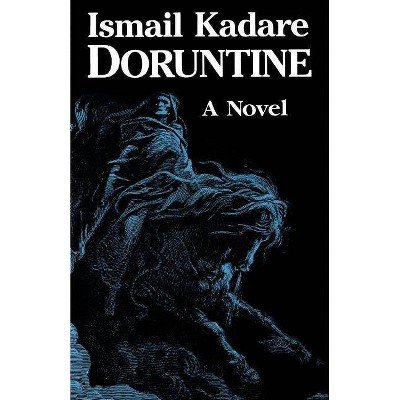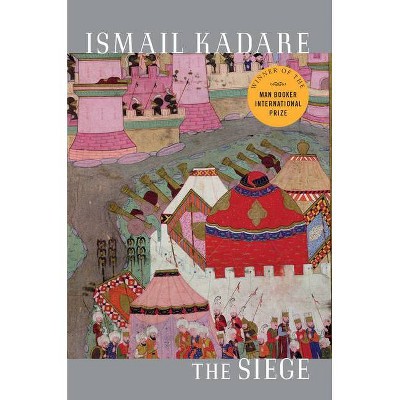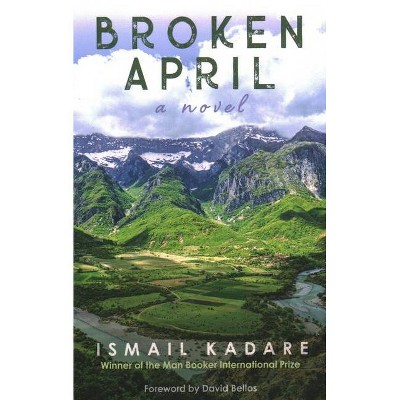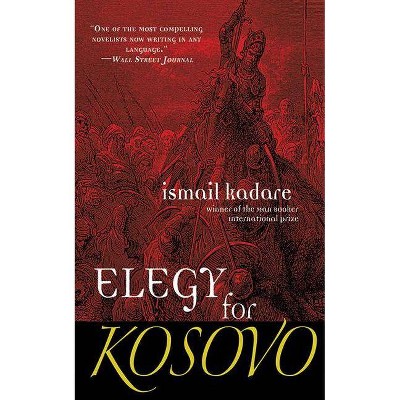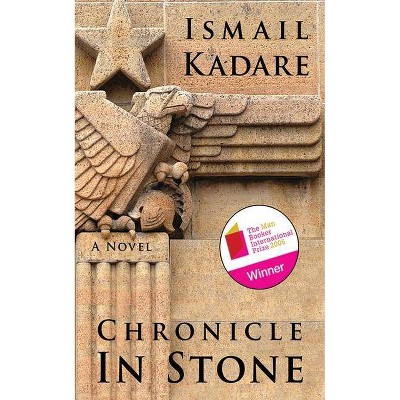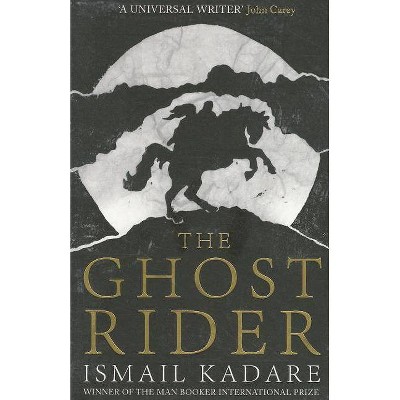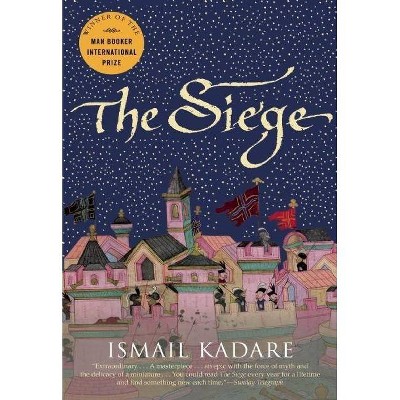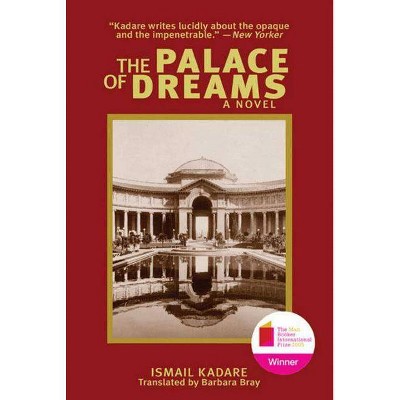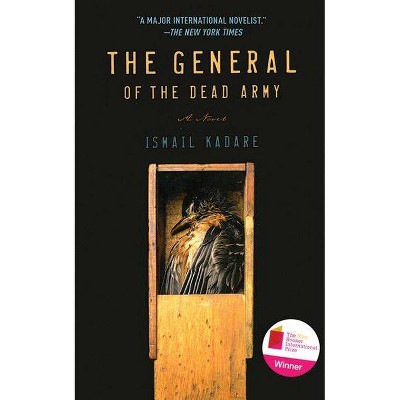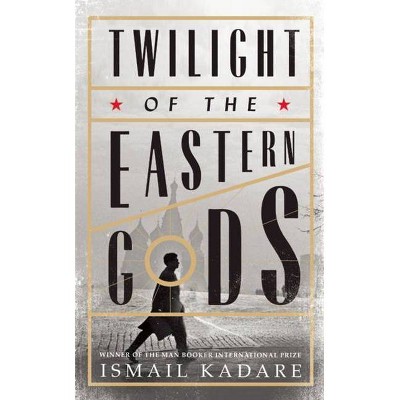Essays on World Literature - by Ismail Kadare (Paperback)
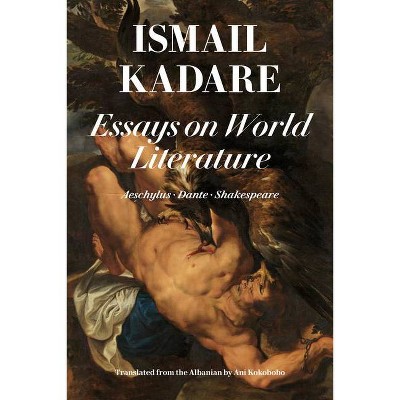
Similar Products
Products of same category from the store
AllProduct info
<p/><br></br><p><b> Book Synopsis </b></p></br></br><p><b>The Man Booker International-winning author of <i>Broken April</i> and <i>The Siege</i>, Albania's most renowned novelist, and perennial Nobel Prize contender Ismail Kadare explores three giants of world literature--Aeschylus, Dante, and Shakespeare--through the lens of resisting totalitarianism. </b> <p/>In isolationist Albania, which suffered under a Communist dictatorship for nearly half a century, classic global literature reached Ismail Kadare across centuries and borders--and set him free. The struggles of Hamlet, Dante, and Aeschylus's tragic figures gave him an understanding of totalitarianism that shaped his novels. In these incisive critical essays informed by personal experience, Kadare provides powerful evidence that great literature is the enemy of dictatorship and imbues these timeless stories with powerful new meaning. <p/> With eloquent prose and the narrative drive of a great mystery novel, Kadare renews our readings of the classics and lends them a distinctly Albanian tint. Like Mark Twain's Mississippi River, Márquez's Macondo, and Faulkner's Yoknapatawpha County, Kadare's Albania emerges as a microcosm of civilization; here, blood vengeance in mountain communities reaches the dramatic heights of Hamlet's dilemma, funereal rites take on the air of Greek tragedy, and political repression gives life the feel of Dante's nine circles of Hell. <p/> Like Azar Nafisi's <i>Reading Lolita in Tehran</i>, <i>Essays on World Literature</i> casts reading itself as a daring act of resistance to artistic suppression. Kadare's insights into the Western canon secure his own place within it.</p><p/><br></br><p><b> Review Quotes </b></p></br></br><br><p>"<i>Essays on World Literature</i> -- consisting of studies of Aeschylus, Dante, and Shakespeare -- is the more fascinating because of the way Kadare looks at his subjects through the lens of his native land. Having been a backwater for so many centuries, Kadare asserts, Albania is closer to the world of Aeschylus and to the origins of tragedy than any other modern nation.</p>--Christian Lorentzen "New York Magazine Vulture"<br><br><p>"Ismail Kadare's first and only collection of essays translated into English, this time directly from the Albanian originals written between 1985 and 2006, offers profound and highly personal meditations on canonical figures of world literary history.... In his indelibly humanist understanding of art, Kadare conceives of literature--the work of canonically great writers--as art that 'cries with the world, ' seeking through letters to understand the uniquely and most deeply human: tragedy, violence, pain.... The 'world' of Kadare's three essays on 'world literature' is a reflection of Albania's 'impossible drama' on the global scale of human history, an observation at once parochial and profound, like the greatness of great art."</p>--Sean Guynes-Vishniac "World Literature Today"<br><br><p>"Kadare is one of the world's great novelists: He won the first Man Booker International Prize in 2005, the Jerusalem Prize in 2015, and numerous other literary prizes, while his novels have been translated into some forty-five languages.... The collection of three essays in <i>Essays on World Literature</i> prove the worth of a different gaze at figures as time-worn as Aeschylus, Dante, and Shakespeare.... Restless Books is to be commended for having this volume translated (and quite ably so) by an Albanian translator, Ani Kokobobo."</p>--Mitchell Abidor "Jewish Currents"<br><br><p>"The Albanian author and perennial Nobel Prize candidate considers the roots and long influence of Aeschylus, Dante, and Shakespeare, especially in his homeland. Kadare, who won the inaugural Man Booker International Prize in 2005, discusses the three authors through the filter of totalitarianism, particularly Albania's oppression under a communist regime and the Kanun, a longtime legal code that effectively endorsed blood feuds.... [A]s windows into his own fiction, [the essays] show that he perceives his favorite themes--among them, oppression, loss, revenge--as part of a through-line that runs back to antiquity. A loose but informed and passionate study of why classic authors endure."</p>-- "Kirkus Reviews"<br><br><p>"Through these three authors--Aeschylus, Dante, and Shakespeare--Kadare tours the history of Western literature, but also gives great insight into what it was like being an intellectual coming of age and finding his own voice in a Communist regime. If you're looking for something to give you a view onto our world as well as insight into how literature can illuminate it--and how both are interconnected--this is a good book to go with."</p>--Keaton Patterson, Brazos Bookstore (Houston, TX)<br><p/><br></br><p><b> About the Author </b></p></br></br><p><b>About the Author: </b> <p/><b>Ismail Kadare</b> is Albania's best known novelist, whose name is mentioned annually in discussions of the Nobel Prize. He won the inaugural Man Booker International Prize in 2005; in 2009 he received the Príncipe de Asturias de las Letras, Spain's most prestigious literary award, and in 2015 he won the Jerusalem Prize. In 2016 he was named a Commandeur de la Légion d'Honneur. James Wood has written of his work, Kadare is inevitably likened to Orwell and Kundera, but he is a far deeper ironist than the first, and a better storyteller than the second. He is a compellingly ironic storyteller because he so brilliantly summons details that explode with symbolic reality. His last book to be published in English, <i>The Traitor's Niche</i>, was nominated for the Man Booker International. <p/><b>About the Translator: </b> <p/> A native Albanian, <b>Ani Kokobobo</b> is assistant professor and director of Graduate Studies in the Department of Slavic Languages and Literatures at the University of Kansas where she teaches Russian literature and culture. She has published an edited volume, <i>Russian Writers and the Fin de Siècle - The Twilight of Realism </i>(Cambridge University Press, 2015), a monograph, <i>Russian Grotesque Realism: The Great Reforms and Gentry Decline</i> (Ohio State University Press, 2017), and another edited volume, <i>Beyond Moscow: Reading Russia's Regional Identities and Initiatives </i>(Routledge, 2017).</p>
Price History
Cheapest price in the interval: 19.99 on October 27, 2021
Most expensive price in the interval: 19.99 on November 8, 2021
Price Archive shows prices from various stores, lets you see history and find the cheapest. There is no actual sale on the website. For all support, inquiry and suggestion messagescommunication@pricearchive.us
